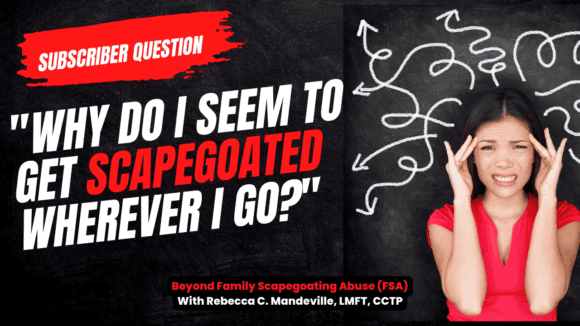Category: Family Scapegoat
-

What Happens When We Weaponize the Term ‘Narcissist’
Navigating life after abuse can be a minefield for adult survivors, where every hurtful encounter might trigger memories of past trauma. In recent years, there’s been a notable trend among survivors engaging on social media and online support forums to quickly label those who cause them harm as narcissists. While this reaction may stem from…
-

FSA and Malignant Narcissism: Impact and Recovery Strategies
Surviving Family Scapegoating Abuse (FSA) can leave lasting scars on individuals, impacting their mental and emotional well-being for years to come. At the heart of certain (not all) FSA dynamics lies the phenomenon of malignant narcissism, a complex personality disorder not included in the DSM-5. Malignant narcissism is characterized by a toxic blend of narcissistic,…
-

What Is Family Scapegoating Abuse (FSA)?
It’s been very rewarding to see that therapists and Mental Health clinics are now adopting the term family scapegoating abuse and releasing articles on FSA to educate others. I will continue to speak out on family scapegoating abuse whenever I am asked as I advocate for those whose psycho-emotional health has been negatively impacted by…
-

“Why Do I Seem to Get Scapegoated Wherever I Go?
New Vlog Release – and announcing a new series on YouTube on my new Beyond Family Scapegoating Abuse Channel, Subscriber Question of the Week: This week’s subscriber question is, “Why do I seem to find myself in the ‘scapegoat’ role wherever I go?”
-

10 Rules of Families That Scapegoat
A family that is dominated by a dysfunctional or narcissistic parent may result in its members living under a set of unspoken ‘rules’, rules which benefit the parent at the expense of their children’s well-being. The research I conducted on what I named family scapegoating abuse (FSA) suggests that dysfunctional families that scapegoat are also…
